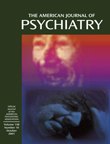Psychoneuroimmunology is an edited textbook on this important but daunting subject, comprising 11 chapters on various aspects of immunology and their possible connections to the brain. The book is part of the Progress in Psychiatry series, a collaboration between the APA’s Annual Meeting Scientific Program Committee and the American Psychiatric Press.
The amount of information on the subject continues to grow. Increasingly, there is more science and less speculation. Many of the ideas of the past in regard to psyche and soma can be better confirmed by sophisticated laboratory data. Many of our ideas from the past turn out to be true. One author points out that “during ontogeny, the neuroendocrine system and the immune system develop in mutual dependence. Consequently, dysregulation in one of these systems induces changes in the other.” After birth it is more chronic than acute stressors that make the difference. The majority of the chapters are concerned with changes that occur with HIV-1 infection. There is copious research available. The chapters on dementia and bereavement are helpful and quite compelling. The dementia chapter gives a thoughtful approach to dementias as a whole, pointing out that cortical and subcortical types have quite different presentations. Likewise, the subject of bereavement in HIV-1 infection is well outlined. Some of the ideas would be helpful in other types of bereavement.
The subject of cancer merits three chapters. It is important to know whether tumors are immunogenic. Virally induced tumors apparently are “most likely” immunogenic, whereas chemically induced tumors most likely are not. Surgery, blood transfusions, and chemotherapy and radiotherapy may affect the immune system. Psychotherapy, relaxation therapy and guided imagery may be of help to patients suffering with cancer, in view of the immune response with cancer. Some studies have suggested increased survival time with psychological intervention. According to the chapter authors, factors affecting immune status can include aging, chronic infection and inflammation, cancer, surgery, malnutrition, overtraining in athletes, noise, smoke, pollution, alcohol, loss of a spouse, unemployment, marital discord, disruption of social support, anticipation of a cancer diagnosis, or caring for a loved one with Alzheimer’s disease. Quite a list. It is important to remember that exposure to chronic stress does not necessarily result in immunosuppression but may lead to adaptation.
Although there is much to be learned, there has been much progress. It is easier to look at natural killer cells and CD4 cells than to devise the appropriate psychotherapy. It is easier to look at the effects of psychiatric medications than to look at the effects of psychotherapy. Markers are hard to come by. The potential is enormous. It seems more intuitive to use psychological techniques with people infected with HIV-1 than with those suffering with cancer. The former would likely be more receptive. It seems clear that much could be offered to both groups.
The use of an edited approach that makes use of the expertise of several research groups as opposed to a standard comprehensive textbook works well for this book. Much of the information is so tenuous that too much information in sequential form would be difficult to digest. Chapters on cardiology and pollutants would have been interesting and timely. In addition to those particularly interested in this field, the book would be helpful to general psychiatrists both in terms of what might be happening to the general patient and in terms of exploring new ways of using the psyche to heal the body. I found the information on the potentially toxic effect of psychiatric medications on cancer patients to be most thought provoking. This is a well-written compilation of papers on the current state of knowledge in the field.

